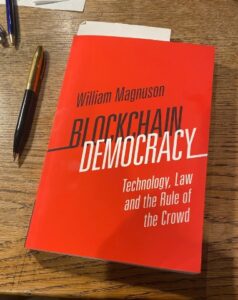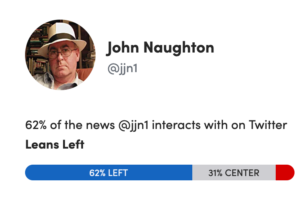How do you do?
Quote of the Day
”The physician can bury his mistakes, but the architect can only advise his client to plant vines.”
- Frank Lloyd Wright
Musical alternative to the morning’s radio news
Crosby, Stills & Nash (Live) | Teach Your Children
Short and very sweet. I used to play it to the kids when they were small. They understood that it was their job to teach me. And that I was a slow learner.
Long Read of the Day
How to review a book
Watch Scott Alexander take on Nassim Taleb’s Antifragile.
A masterclass in how to be thorough, fair-minded and critical.
Memoir of a recovering Utopian
I was invited to give a brief talk on March 16 at a (virtual) symposium on the history of UK computing from the 1950s to the 1990s organised by the Royal Society. The video is here if you’re interested. It’s short — just under 5 minutes. (It’d have been longer if I had a Nobel prize, I guess.)
Why a thriving market in used EVs is needed to speed up the decarbonising of transport
Andrew Curry (Whom God Preserve) pointed me to this post by Andrew Salzberg:
One of the challenges of turning over the vehicle fleet to 100% electric is that old gasoline cars stay on the road for a long time, as I wrote about in an earlier newsletter and the New York Times explored last week. However, if each new EV can stay on the road longer than their gasoline counterparts, they can help accelerate the retirement of fossil fuel burning cars. That’s one reason to hope that EVs can have long and happy lives in the second hand vehicle market.
Since electric vehicles emit carbon dioxide when they’re made, keeping them on the road longer also spreads those emissions out over a larger number of miles. A thriving market for older EVs could help make them a better climate fighting tool.
Second hand EVs also make electric mobility cheaper and more accessible to lower income consumers. That’s important, since a valid criticism of EVs today is that they’ve mostly ended up in affluent hands. Cheaper second hand electric vehicles could also serve growing ridehail and food service fleets like Uber and Doordash (Uber’s even said so). Those drivers are looking for cheap-to-operate vehicles, and often aren’t in a position to afford the high price tag of new EVs. One way to rapidly electrify those fleets is to funnel a growing pool of second hand EVs into their hands.
In order to speed things up, we also need legislation to enshrine the Right to Repair in English law (as it is, I believe, already in France)
En passant The second-hand car market has always been an instructive place in which to learn about human nature. And also to learn something about the economics of information — as testified, for example, by George Akerlof’s famous 1970 paper, “The Market for Lemons”.
”I Beg to Differ”
Really lovely, insightful essay by Geoff Shullenberger about the interesting role that contrarians play in our media ecosystem.
If you (like me) spend too much time on social-media platforms, especially Twitter, you will have noted the outsized presence of a particular type: the contrarian. By this, I mean someone who nominally belongs to an ideological faction, but consistently dissents. You probably also have strongly positive or negative feelings about contrarians. But such loyalties tend to obscure the pivotal role this figure plays in the current media landscape.
The rise of the self-publishing platform Substack over the past year has highlighted the contrarian’s role, since many newsletters in its top earning tier (including this one) might be understood as contrarian efforts. For example, Glenn Greenwald and Matt Taibbi are leftists who have attacked Democrats’ allegations against Donald Trump; Matt Yglesias is a liberal who has advocated causes like deregulation and population growth; Andrew Sullivan is a conservative who long advocated for gay marriage and was a vocal opponent of Trump. Other recent additions include castaways from previous perches like Bari Weiss (formerly of The New York Times), Freddie deBoer (formerly of Brooklyn College) and Scott Alexander (formerly behind the influential blog Slate Star Codex).
In investing, contrarianism can be an overt tactic. But you will rarely find an online political contrarian who openly embraces the label. Instead, it tends to be applied by others, often as an insult. The implied criticism is that contrarians only define themselves against the prevailing views of the group, without articulating an independent stance.
Worth reading in full.
Blockchain Democracy
Our Research Centre is holding a Webinar with the author tomorrow (Thursday) at 17:00 GMT. All welcome. Register here.
Other, hopefully interesting, links
- What does your filter bubble look like? Interesting tool. Link
- Was Len Sassaman actually Satoshi Nakamoto, the inventor of Bitcoin? This is the most plausible conjecture I’ve seen. If true, it’s a sad story. The identity of Satoshi is one of the most tantalising puzzles of the digital age. Link.
This blog is also available as a daily email. If you think this might suit you better, why not subscribe? One email a day, delivered to your inbox at 7am UK time. It’s free, and there’s a one-click unsubscribe if you decide that your inbox is full enough already!



